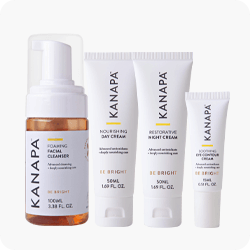A lot of us will know that person in their 70s or even 80s who seem to defy age – they have an energy and grace that is more suited to someone decades younger. In contrast, there’s also that person old beyond their years – instead of embracing their life and making the most of each day, they sit by and wait for their mind and body to deteriorate.
If you’re aiming to be more like that first person, full of vitality and a passion for life, there are a few scientifically backed ways to help you get there.
Eat Nutritious Food
This is an obvious one, but one that many people struggle with. Loading up on veggies, whole grains, nuts, and fruits means you eat less of the processed food we all know is not good for us. Whole foods such as blueberries and spinach have antioxidants like vitamin C and vitamin E and can help keep your cells healthy, while fish is high in omega-3 fatty acids and helps prevent heart disease and stroke. So instead of reaching for that packet meal or ordering takeout, stock up on the good stuff and live a longer, healthier life.
Keep Active
While high-intensity interval training and heavy lifting are proven to burn fat faster and keep your body strong, exercise doesn’t have to be intense to work. Aim for a 30-minute walk every day, which will keep brain cells healthy by delivering more blood and oxygen. If you can make it a brisk walk, fast enough to feel a little breathless, even better. Aerobic exercise can help delay or improve symptoms of Alzheimer’s disease, as well as boost your mood, control weight, help you sleep better, and reduce your risk of heart disease, high cholesterol, and type 2 diabetes.
Stay Connected
Loneliness is a hidden killer among elderly people. Not only do people who feel lonely have a higher chance of getting dementia or depression and find everyday tasks more difficult, but they also die earlier than those who aren’t lonely. Loneliness is also responsible for higher levels of stress hormones that cause inflammation, linked to arthritis and diabetes. You don’t need to be a social butterfly but try helping someone else in need or volunteering for an hour a week. A small connection will go a long way.
Supplements
While getting nutrients from food is ideal, after you reach 50 your body needs more vitamins and minerals than before to keep it strong. These include calcium for strong bones, vitamin B6 to keep your red blood cells robust and maintain a healthy flow of oxygen, and vitamin D, which most people get from sunlight. Check out Xtendlife’s Total Balance range, which is a complete nutrient system that provides you with all the vitamins and minerals your body needs to help you experience optimum health.
Try Yoga or Tai Chi
Aging brings changes that are sometimes hard to see but easy to feel. Things such as elasticity, strength, decreased bone density, endurance and stability all deteriorate as our body ages. By practicing yoga or Tai Chi, you can limit these age-related changes by helping with movement and flexibility and it doesn’t matter at what age you start. Weight-bearing exercises can help build muscle and better balance, reduce joint pain, increase flexibility and build your core muscles for a stronger back. With so many benefits, start now and feel the results.
Quit Now
Everyone knows tobacco is a killer which harms almost every organ in your body. It’s never too late to quit and doing so now could add years to your life. Your body begins to rid itself of the toxins within 20 minutes of your last cigarette. Within a year, the odds of heart disease drop by half. Ask your doctor for help, before it’s too late.
Be Grateful
The older we get, the more pain and suffering we see in this world. Losing loved ones and watching friends become ill can take its toll on anyone but staying optimistic and being grateful for the blessings you do have is one way to live longer. Positive thinking can have an enormous impact on your body, with research showing people who look on the bright side suffer fewer heart attacks and depression than more negative people. While being positive might not be natural for some, you can teach yourself to change your outlook. Try faking a smile, which can lower stress, keeping a gratitude diary, helping others, surrounding yourself with positive people who boost your spirits, and accepting the things you can’t change.


 Supplements
Supplements Bundles
Bundles









